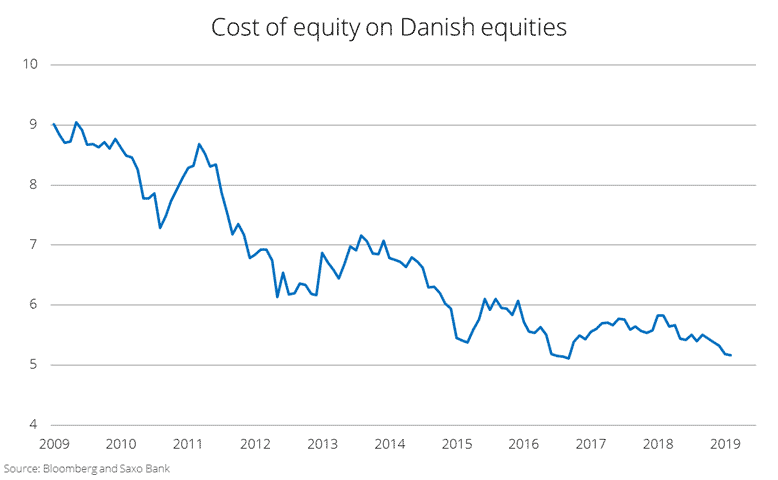Danske Bank is the second-largest bank in the Nordic region as measured by total assets. It was also a post-financial crisis success story as the bank managed a spectacular turnaround in its business, lifting return on equity from around 2-4% in the years after the financial crisis to 10-12% more recently. Investors were rewarded in the 2009-2019 period with Danske shares up 12.2% annualised including reinvestment of dividends. This return is at par with the MSCI Nordic Index in the same period, but at its peak in around mid-2017, Danske had outperformed the Nordic equity benchmark by eight percentage points (annualized, starting in January 2009), which is impressive for a banking stock.

Danske Bank’s money laundering scandal, which came to light in early 2018 and related to issues at the bank’s Estonian branch in the years 2007-2015, has lowered the share price by 44% since it surfaced. The scandal is the biggest in Europe’s history and an embarrassment for Denmark as the country prides itself as a transparent country with high ethical standards. Shareholders are deeply concerned over the revelations and management's slow reaction to the scale and consequences of the scandal.
The Estonian branch’s non-resident business profited around DKK 1.7bn in the period 2007-2015; this implies penalties in the US of up to around $1 billion according to estimates provided by Bloomberg. Danske is being investigated by the US Securities and Exchange Commission, the Department of Justice and the Treasury Department, with the latter likely posing the biggest risk to Danske Bank.
We also see a small probability of Danske Bank being cut off from the US financial system like Latvian bank ABLV was in 2018, though Danske Bank is cooperating with US authorities.
The Financial Times reported back in January that consensus is looking for an aggregate fine of around $5bn while the Bloomberg Intelligence team covering banks put the estimate around $2bn. Both amounts can be dealt with by Danske Bank, particularly as the fines will drag out over years, diluting the impact.
From an ongoing concern perspective, the fines are one-off items with some potential effect on the bank's continuing operations (likely a small impact due to the stickiness of banking business), so the impact on return on equity should be limited.


